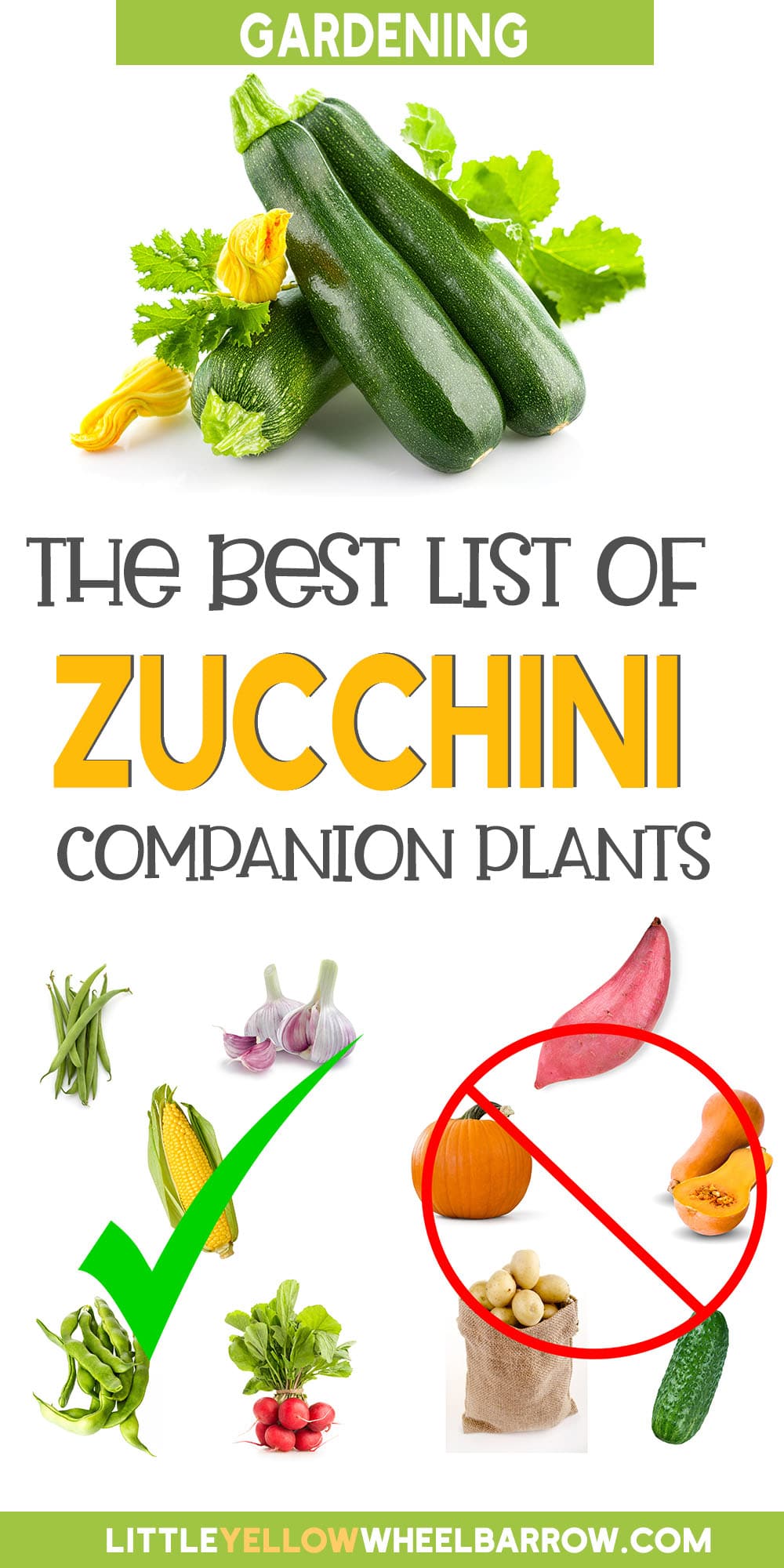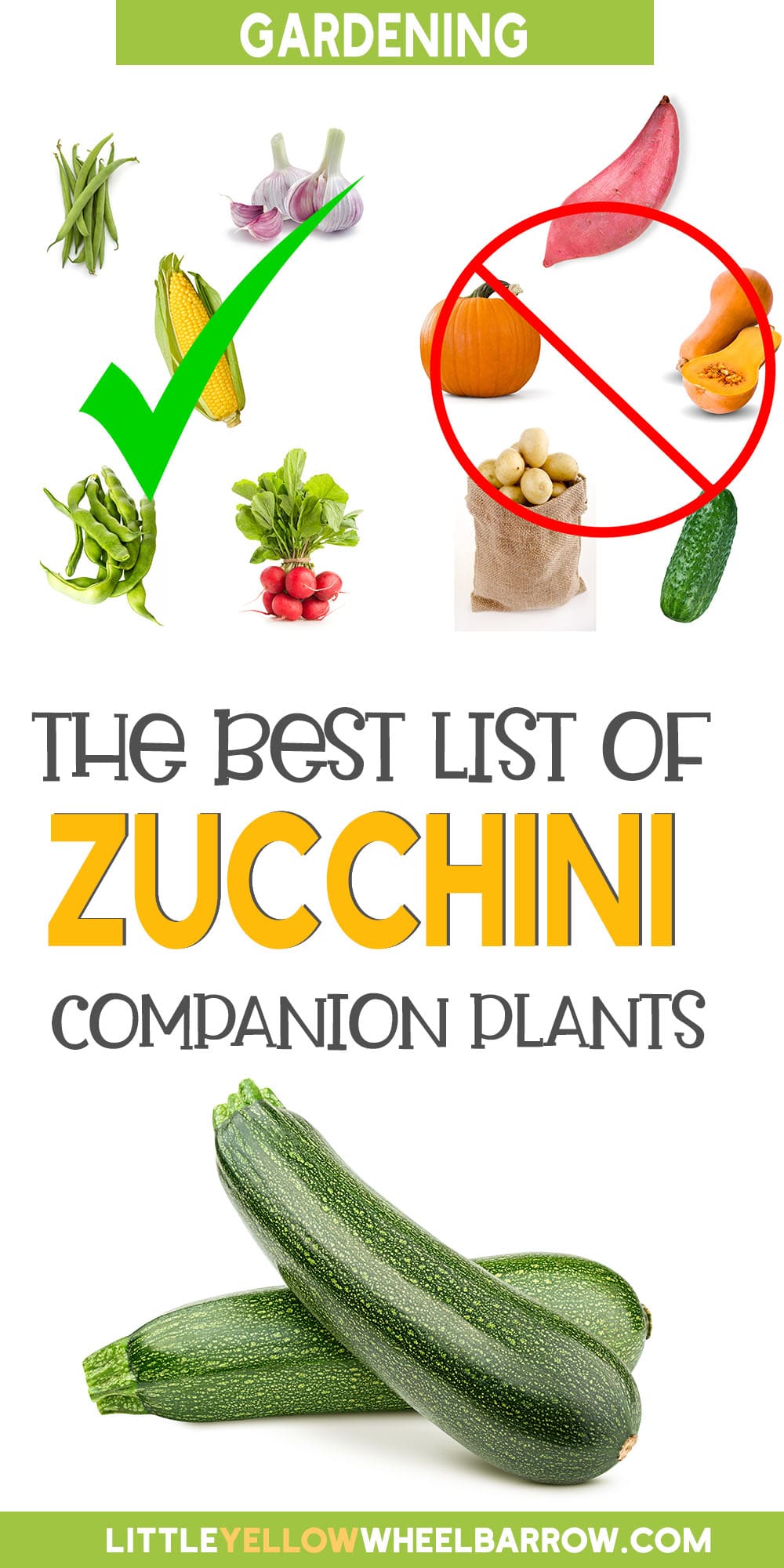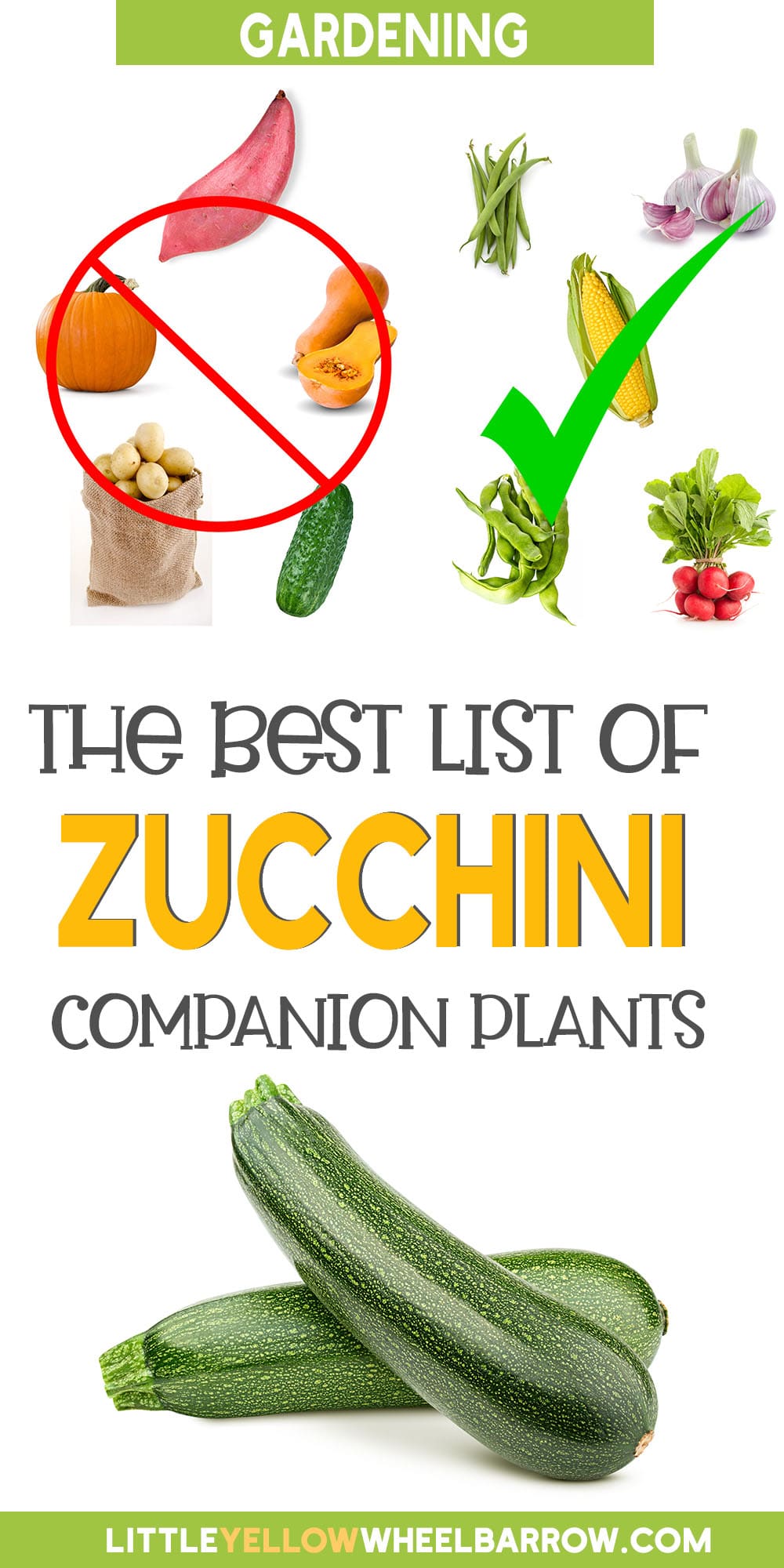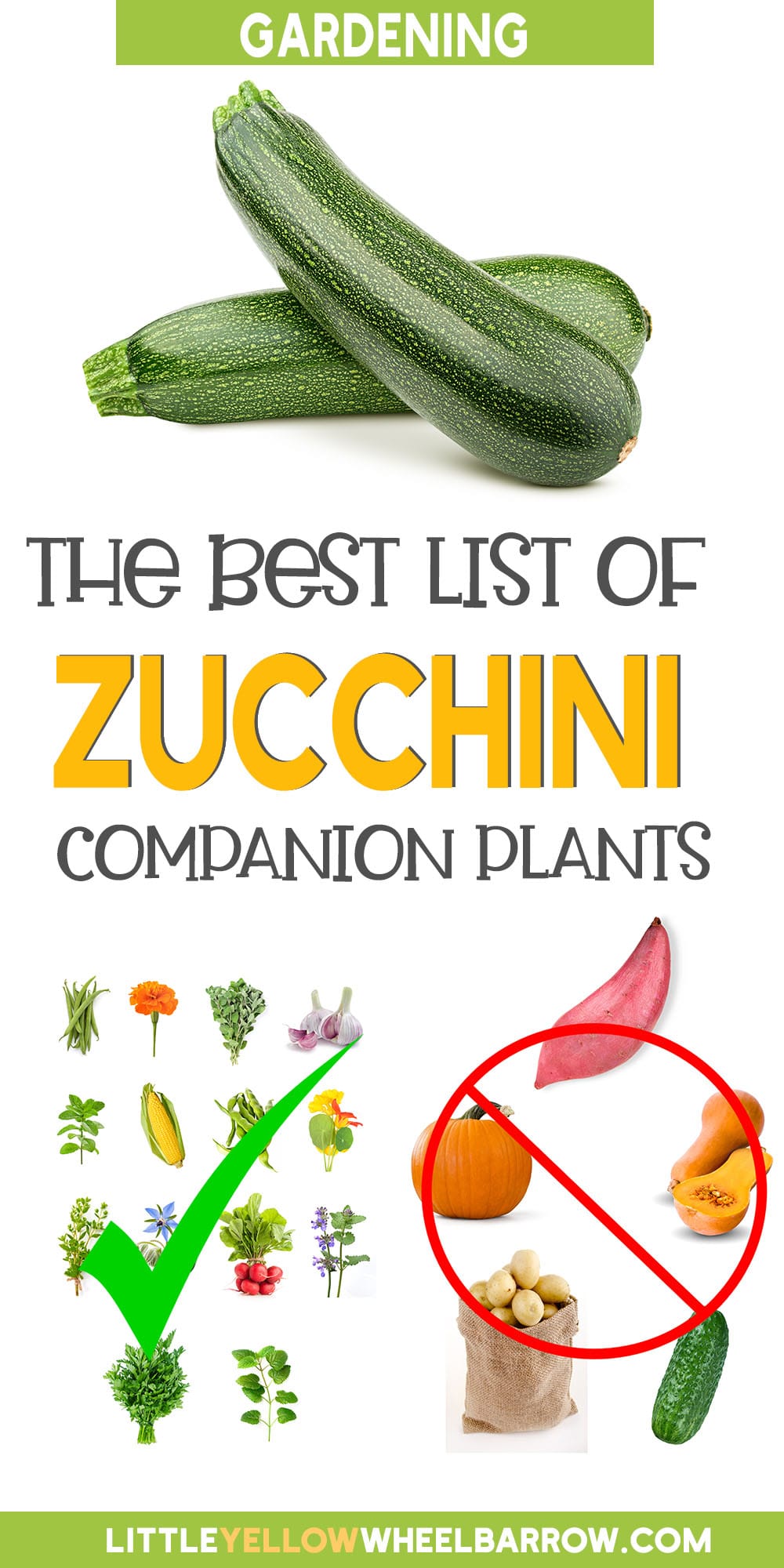Companion Plants for Zucchini For Better Yields
If you’re an avid gardener and want to ensure a healthy and robust zucchini harvest, consider adding a few specific companion plants for zucchini. These plants can help improve the soil quality, repel pests, and attract beneficial insects, all of which can contribute to maximizing the growth and productivity of your zucchini plants. In this article, you’ll find essential insights and practical tips on selecting and planting companion plants best suited for your zucchini garden.

In the following sections, we delve deeper into the world of companion plants for zucchini, exploring the different types of plants that can enhance soil health, deter pests, attract pollinators, and promote overall garden resilience. This article provides valuable insights to help you cultivate a thriving and harmonious garden ecosystem no matter your gardening experience.
The Best Companion Plants for Zucchini
Beans & Peas
Bush beans, pole beans, and peas make good companion plants for zucchini because they introduce nitrogen into the soil, providing much-needed nutrients. Other plants in the legume family may also be planted alongside your zucchini.
Zucchini can be planted a few inches from the base of your legume trellises, leaving enough room for the bean and zucchini plants to grow.
Corn
Planting corn, beans, and squash together is the three sisters gardening method indigenous peoples of North America created over 3500 years ago. The planting method forms a mutually beneficial relationship all around.
Tall stalks of corn will give vining plants like zucchini a place to trellis.
The zucchini plants shade the ground with their large leaves. Those broad big leaves help cool the soil and retain moisture. The boisterous growth of the zucchini plant will also help shade out weeds.
Corn and zucchini also enjoy the same type of growing conditions.

Radishes
Squash bugs, squash vine borers, cucumber beetles, and aphids are all repelled by radishes. By planting a few radishes around the edge of your garden bed, you can stop them in their tracks.
Garlic
Garlic is an excellent companion for zucchini. It repels pests naturally and improves soil health. Garlic’s strong aroma deters pests like spider mites, aphids, and squash bugs, reducing the need for chemical pesticides.
Garlic’s sulfur compounds suppress soil-borne diseases like damping-off and root rot, and deter nematodes. The plant is also low-maintenance, doesn’t overshadow zucchini plants, and creates a diverse and resilient garden ecosystem.

Aromatic Herbs
Fragrant herbs such as oregano, mint, lemon balm, parsley, catnip, marjoram, and borage help repel insect invaders. Adding at least one of these herbaceous plants to your zucchini is a good idea.
Borage will also put calcium back into the soil, which benefits your zucchini plants. Bees also LOVE borage!
Mint is also said to enhance the flavor of zucchini.
Flowering herbs can also attract pollinators and beneficial insects like ladybugs, parasitic wasps, lacewings, and garden beetles that feed on pests.

Nasturtiums
Nasturtiums are among the best zucchini companion plants for several reasons:
“Beauty” isn’t always listed as a benefit for companion plants, but I just love how nasturtiums look twisting around the ground with the zucchini leaves. The colorful flowers also help to attract beneficial insects like bees and butterflies to your garden.
Nasturtium vines growing on top of the soil also help provide shade, preventing moisture loss and acting as mulch.
Flea beetles and cabbage moths are attracted to nasturtiums, which helps keep them off your other vegetables, acting as a ‘trap crop’.
Learn More: For more information on nasturtiums, check out our articles on nasturtium companion plants, and how to grow nasturtiums.

Marigolds
Like Nasturtiums, Marigold’s bright brilliant flowers and abundant food sources attract beneficial insects like bees to the garden.
Marigolds also attract parasitic wasps, ladybugs, and hoverflies, which feed on many insect pests that can affect your zucchini plants.
Marigolds’ strong smell can also act as pest control for pests such as flea beetles and deter squash vine borers and bugs, making them an excellent companion plant.
See our complete guide for the many wonderful uses of marigolds! Also check out this full guide about marigold companion plants before you plan your garden – the flowers are more versatile than you think!
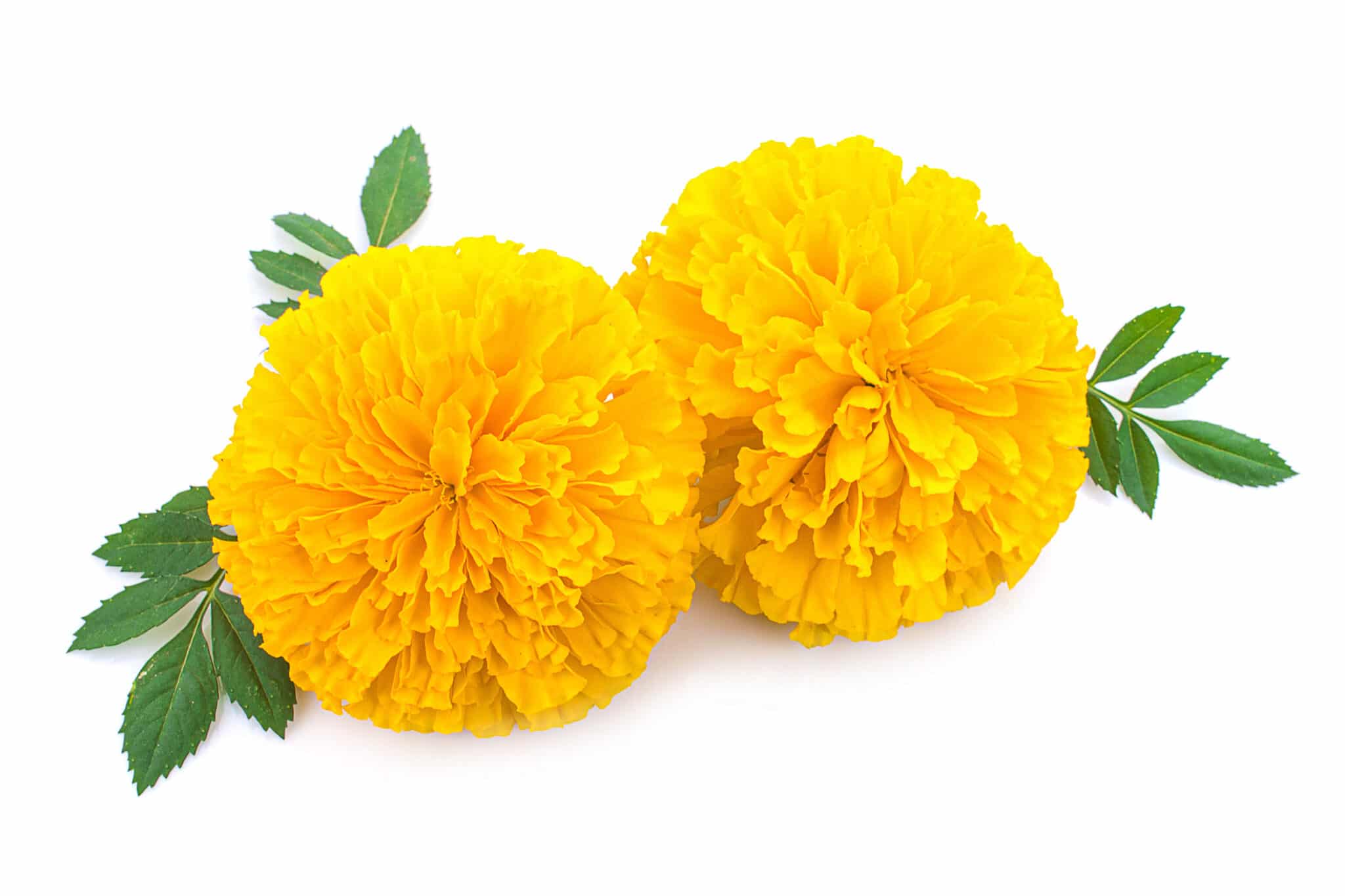
Dill
Dill is an excellent companion plant for zucchini due to its ability to attract beneficial insects such as predatory wasps and ladybugs. These insects prey on common pests that can afflict zucchini plants, such as aphids and caterpillars. By attracting these natural predators, dill helps to keep pest populations in check, reducing the need for chemical interventions.
Basil
Basil is another beneficial companion for zucchini, offering both pest-repelling properties and culinary value. The leaves emit a strong aroma that deters mosquitoes, flies, and thrips, which can be problematic pests for zucchini plants. Planted nearby, basil acts as a natural pest control measure, reducing the likelihood of pest infestations on zucchini.

Onions
Onions make advantageous companions for zucchini due to their pest-repelling properties and complementary growth habits. The plants emit a pungent odor that deters pests such as aphids, which can damage zucchini plants. Growers create a barrier against pest infestations by interplanting onions with zucchini, promoting healthier zucchini growth.
Additionally, onions and zucchinis have differing root depths and nutrient requirements, reducing competition for resources like water and nutrients. This harmonious relationship fosters an environment conducive to the optimal growth of both crops, resulting in a more productive and resilient garden ecosystem.
Plants that Make Bad Companions for Zucchini
Like any vegetable, there are some plants that you should not plant near your zucchini plants. The following plants will compete with nutrients or help spread diseases among your zucchini:
Sweet Potatoes and Potatoes
Potatoes do not make good zucchini companion plants. Potatoes are heavy feeders and will compete with zucchini for nutrients and water. The competition for nutrients can cause the stunted growth of both the squash and the potatoes.
Learn More: To find out what CAN be planted with sweet potatoes, check out our article on sweet potato companion plants.
Cucubrits (Pumpkins, Squash, Cucumbers)
Pumpkins and squash plants are also heavy feeders that will compete for nutrients. Squash and pumpkins also share similar pests and diseases like powdery mildew. For the garden’s health, it is better to diversify planting to help reduce pest and disease spread.
During the growing season, squash, pumpkins, and cucumbers occupy considerable garden space. It’s easy to save precious garden space if you plant smaller, more suited companion plants alongside your zucchini.
These plants also share the same garden pests; planting them together will encourage large infestations that can become difficult to control.

Expert Tips
- Intercropping and Succession Planting: Rotate companion plants with zucchini in different garden sections each season to prevent the buildup of pests and diseases. Succession planting ensures a continuous supply of companion plants throughout the growing season, maintaining their beneficial effects on zucchini and other crops.
- Diversify Plant Selection: Incorporate a variety of companion plants with different pest-repelling properties and growth habits to create a balanced ecosystem. By diversifying companion plants, you can attract a wide range of beneficial insects and improve overall garden resilience.
- Companion Plant Guilds: Create companion plant guilds around zucchini by combining plants that mutually benefit each other. For example, a guild could include zucchini, basil, marigolds, and dill, each serving a specific function such as pest control, soil improvement, or attracting pollinators.
- Compost and Mulch: Use companion plants, such as legumes like beans and peas, to enrich the soil with nitrogen through nitrogen fixation. After harvest, chop and drop the plant residues as green manure or add them to compost to improve soil fertility. Mulch with companion plant residues to suppress weeds, retain moisture, and enhance soil structure.
- Attract Beneficial Insects: Plant flowers near zucchini, like nasturtiums, marigolds, and dill, to attract beneficial insects such as predatory wasps, ladybugs, and hoverflies. These insects help control pests naturally, reducing the need for chemical pesticides and promoting a healthy garden ecosystem.
- Trap Cropping: Use companion plants like radishes as trap crops to lure pests away from zucchini. By sacrificing a portion of the radish crop to pests, you can protect the main zucchini crop from infestation and minimize damage.
- Observation and Monitoring: Regularly inspect companion plants and zucchini for signs of pests, diseases, or nutrient deficiencies. Early detection allows for prompt intervention through natural pest control methods or targeted amendments to soil fertility.
- Crop Rotation: Rotate zucchini and companion plants with different families of vegetables each season to prevent the buildup of soil-borne pests and diseases specific to certain plant families. A well-planned crop rotation schedule helps maintain soil health and reduces reliance on chemical interventions.
More Zucchini Growing Articles
Check out these articles to help you grow happy, healthy zucchini plants this year:
FAQ
Companion plants can be interplanted with zucchini in the same bed or grown in nearby containers or raised beds. Consider the growth habits, spacing requirements, and compatibility of companion plants with zucchini to ensure optimal results.
Companion plants such as dill, basil, marigolds, and onions are known for their pest-repelling properties, helping to deter common pests like aphids, squash bugs, and cucumber beetles that can damage zucchini plants.
Planting companion plants with zucchini can help deter pests, attract beneficial insects, improve soil fertility, and maximize garden space utilization. Additionally, companion planting promotes biodiversity and creates a more resilient garden ecosystem.
While many plants make good companions for zucchini, some may compete for resources or inhibit zucchini growth. Avoid planting invasive species or those with aggressive root systems that may overcrowd or overshadow zucchini plants. Additionally, be cautious of planting plants from the same family as zucchini, such as other cucurbits, as they may attract similar pests and diseases.
Grab Our Ultimate PRINTABLE Garden Planner
With 39 pages of planning and organizing and the ability to customize your planner with the pages you need, you won’t need another planner for the rest of your gardening life!
$4.99 US

Final Remarks
Incorporating companion plants alongside your zucchini can make a huge difference. It promotes healthier growth and enhances a more sustainable and vibrant garden ecosystem. Utilizing the natural synergies between different plant species can reduce the need for synthetic inputs, encourage biodiversity, and enjoy abundant harvests. Imagine having a garden that not only pleases the senses but also supports the environment and nourishes you and your loved ones.
Comments, Questions, Tips?
We’d love to hear about your experiences with companion planting for zucchini! Share your tips, success stories, and questions in the comments below or reach out to us via email. Let’s grow together and foster a vibrant community of gardeners dedicated to sustainable and fruitful gardening practices.
Related Posts

Author: Laura Kennedy
Writer & Owner of Little Yellow Wheelbarrow
Laura is a highly skilled gardener and fervent flower enthusiast. Despite her playful battle with plant spacing guidelines, Laura’s work inspires gardeners to create thriving, beautiful spaces that reflect both creativity and sustainability.
Editor’s note: This post first appeared on March 26, 2022. It was updated on March 1st, 2024 to include FAQ, expert tips, better formatting and additional information.

